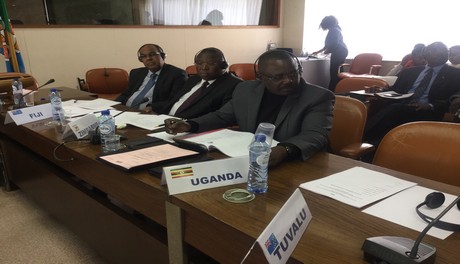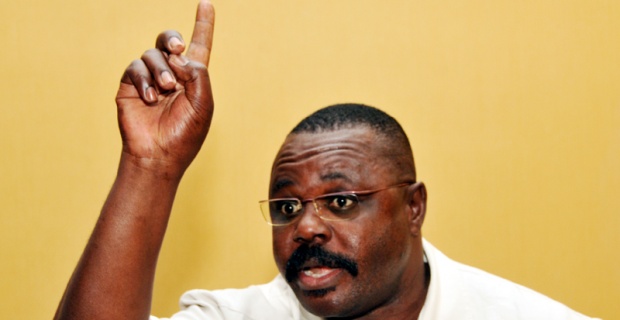
The Deputy Speaker of Parliament has cautioned that the International Criminal Court (ICC) risks being alienated and rejected by the African nations in particular, because of its apparent bias against them.
Speaking at the 45th Session of the African, Caribbean and Pacific Group of States (ACP Group) Parliamentary Assembly in Brussels yesterday, Tuesday 21st March, 2017, Rt. Hon. Jacob Oulanyah said that African countries can resolve to leave the ICC if the institution continues targeting and harassing African leaders.
‘The ICC’s continued harassment of African leaders, positions it as a vehicle of neo colonialism which we as African nations should reject. We need to revisit our commitment to the ICC if they continue this attack against our counterparts. We cannot afford to sit back and look the other side as Sudan, Congo and Kenya are harassed,’ Oulanyah said.
‘We in Uganda were among the first to embrace the ICC because we needed help to handle and arrest the leaders of Lord’s Resistance Army; we could not handle the task alone. Additionally, a number of African countries decided to join the ICC so as to jointly fight impunity on the continent regarding crimes against humanity. However, to our dismay, we are finding that the line that the ICC is towing has defeated its purpose of existence,” the Deputy Speaker said.
Oulanyah made this passionate submission during the meeting of the Committee of Political Affairs of the ACP Parliamentary Assembly. This has preceded the ACP- EU Joint Parliamentary Assembly, which will take place on Thursday 23rd and Friday 24th March, 2017. The Committee was discussing the item, ‘The Future of the ICC after the possible withdrawal by some African States’, which will be addressed as an agenda item in the plenary.
Calling upon his African counterparts to take careful consideration in making decisions regarding their membership to the ICC, Oulanyah said that Kenya had suffered at the hands of the ICC with no viable outcomes. He added that it is high time the African states considered the proposal of having a Court of their own.
“We should, as Africa, shoulder our responsibilities and have a court of our own. We await the African Union decision on this proposal, which we should fully support. Much as each individual country can in its own right make the decision on whether to stay in the ICC or not, we must continue this debate until we reach a decision,’ he said. “At the end of the day, it’s possible for countries to withdraw if they want to. It is important to note that for the ICC to thrive, there should be no iota of bias in its operations.”
Different contributors in the meeting expressed concern over the impartiality of the ICC, stating that the institution was attacking and undermining the independence of African nations; with the DRC referring to the prosecution of Kenya’s President Uhuru Kenyatta as ‘uncomfortable and humiliating’ . “Our sovereignty as African states is being questioned.

However, we need to be able to take individual positions regarding our membership to the ICC, because we signed the Rome Statue as individual states, not as the African Union,’ a contributor from the DR of Congo said.
He added, however, that if the African states resolved to leave the ICC, there was need for them as leaders to fight impunity in their countries and ensure that the citizens, whom they represent, are entitled to justice. ‘What happens to the victims, have we thought of putting in place an institution or system to handle the injustices and cruelty meted out on them? They are entitled to justice like everybody else; we should not deny them that. Let us afford them an alternative and not lose sight that we have victims of injustices in our respective countries; an independent judiciary system needs to be put in place, therefore, to meet this need.”
A contributor from Grenada cautioned the Committee members against standing in the way of justice, saying that populations are looking at the international community to deal with the situation and help them find solutions.
“Let’s take the key facts into consideration as we make the decision. Let’s address the conduct of the ICC against African countries and remember that bad leaders should be held accountable for their misdeeds against the citizenry,” he said.
The Committee resolved to, at the end of the day, retain the item on the Joint Parliamentary Assembly Agenda, saying that the European Union Parliament was ready to debate and exchange views on the ICC. They further added that there was need to follow the procedure as set by the Rome Statute, since countries had made individual obligations.
“Those States which signed the Rome Statute need to stand up and be counted, and assume their responsibilities. The ACP does not and will not handle the ICC decision as a body, but will engage in discussion over the same in the Joint Assembly, so that the message can be driven home,” the Committee resolved.

